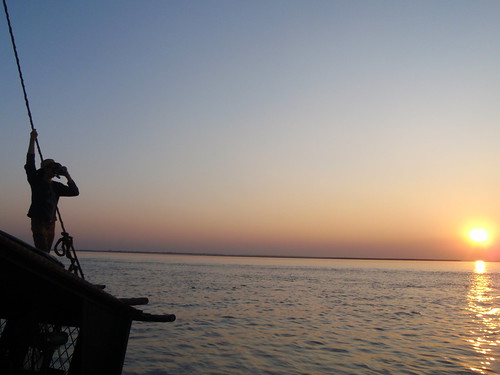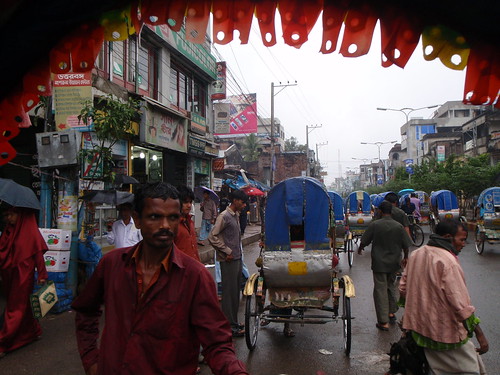It is hard to believe that nearly four months has passed since I stepped off that plane at the Zia International Airport back in August. In some ways, it seems as if it was only yesterday, but in fact, enough time has now passed for the air to have chilled, for the mangoes to be long out of season, and for me to have completed my field work. Zakia and I interviewed 104 respondents; 104 names and faces whirl around in my mind and for the most part blend into one, but there are a few that seem to stand out and may forever be entrenched in my memory. My Bangladeshi experience was in stark contrast from my first visit here as a CIDA youth intern in 2006. The tremendous culture shock and isolation I felt back then will not be soon forgotten; in fact, I had to ask myself several times why on earth I was returning! This time, however, despite the expected shifting of gears right at the beginning, I felt as though I had warmed up to this country. Learning more of the language helped tremendously in situations that were previously frustrating, and often, when actions seemed irrational, there were logical reasons behind them (this was not always the case either, of course). I was much more at peace and I think in any kind of international work, this acclimatization is vital to be receptive and able to connect with the local people. Perhaps this can be said of any study, anywhere, but in such unfamiliar surroundings, it is important to allow yourself additional time to become acquainted with the country and its people before jumping straight in. Feeling as I did the first time would have made it far more challenging to work with Zakia and to obtain any insight into the lesser known industry of shipbreaking.
Dr. Hugh Davies visited Bangladesh this month for nearly two weeks. The purpose of his visit follows the three main ideas of this blog: Projects, Training, and Collaboration Opportunities. He observed Zakia and me conducting interviews in Bogra, attended a dozen meetings in Dhaka that spanned labour organizations to research institutions, and squeezed in a short trip to Chittagong as well. While his visit in April allowed him to get a general sense for occupational and environmental health research here and areas for growth, I believe this visit revealed many more specific avenues for future projects, training programs, and solid collaborators to start working on some proposals with immediately. In the new year, after sorting out the flurry of information, another entry could be dedicated to the various groups he met with, and what their areas of interest are.
On my last morning in Bogra, I was peddled through the little potholed streets on a rickshaw, while observing all the familiar morning rituals of shops opening, old men gossiping, and the flipping of chapattis in the roadside stalls. The sky was pink from the sunrise, the aroma of fried eggs lingered in the slightly chilled air, and I was momentarily overwhelmed with a sudden sadness. I took comfort in knowing all my goals for this portion of the study had been met, (that there are many months of data analysis and thesis writing ahead to remind me of this country that I have grown to love), and that this will, inshallah, not be my final farewell to Bangladesh.


I wish you all the best in your work with the people of Bangladesh. It is people like yourself Midori who are making a difference.
Thank you for all of your hard work!